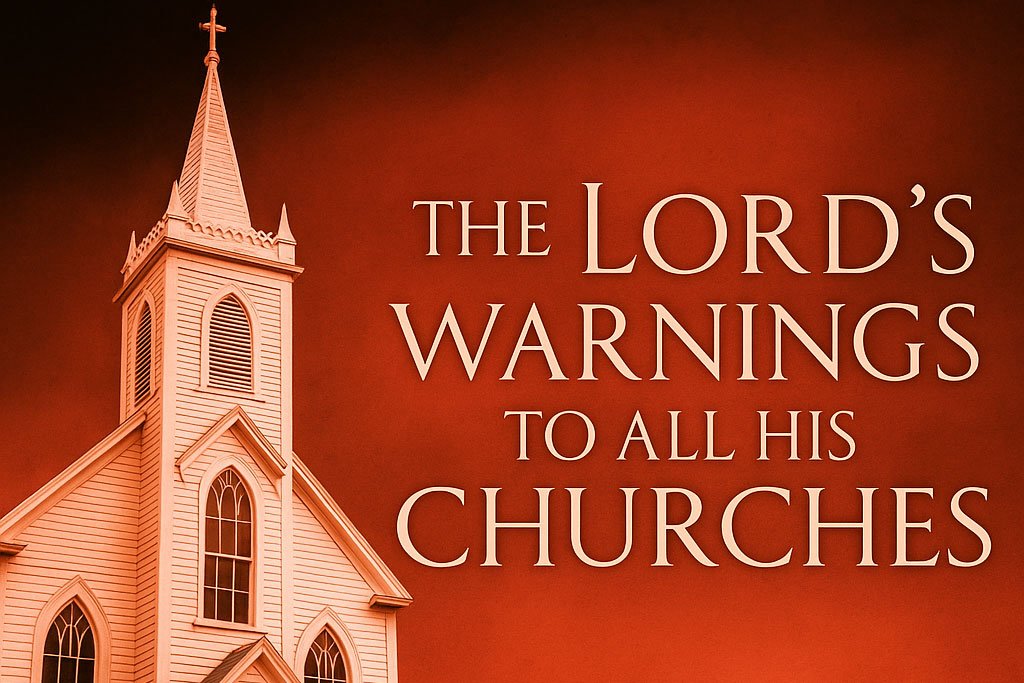- PART ONE: The New Testament churches sins against our Lord Jesus Christ Himself.
- Section 2: The sins committed by the New Testament churches and the truth in the spoken words of God
- SECTION 4: The sins committed by the New Testament churches and the truth in the spoken words of God
- SECTION 5: The sins committed by the New Testament churches and the truth in the spoken words of God the churches
- Section SEVEN The sins committed by the New Testament churches and the truth in the spoken words of God
- Section TEN The sins committed by the New Testament the churches and the truth in the spoken words of God
- SECTION 11: The sins committed by the New Testament churches and the truth in the spoken words of God
- Sunday’s worship betrayal and hypocrisy of the New Testament churches
- SECTION 8: The sins committed by the New Testament churches and the truth in the spoken words of God
- Section 1: The sins commited by the New Testament churches and the truth in the spoken words of God
- The sins committed by the New Testament churches and the truth in the spoken words of God the churches
- Section 3: Sins committed by the New Testament churches and the truth of the spoken words of God
- SECTION 2: . The sins committed by the New Testament churches
The Eternal Spoken Words of God and the Feasts of the Lord
1. Our Sin and Need for Repentance
Our rejection of God’s first day and His spoken words has brought upon us the greatest sin. We are desperately in need of confessions and repentance for the immense weight of sins committed by the New Testament churches against our Lord Jesus Christ. These churches are in urgent need of serious prayers, confessions, and repentance in preparation for the second coming of our Lord Jesus Christ.
2. Jesus Christ as the Word
The Lord Jesus Christ Himself is the Word from the beginning, as John 1:1 declares:
“In the beginning was the Word, the Word was with God, and the Word was God.”
The truth and certainty of God’s spoken words are recorded in the Bible.
3. God’s Feasts and Holy Convocations
Leviticus 23:1-4 states:
-
“The LORD spake unto Moses, saying, Speak unto the children of Israel, and say unto them concerning the feasts of the LORD, which ye shall proclaim to be holy convocations; even these are my feasts.”
-
“These are the feasts of the LORD, even holy convocations, which ye shall proclaim in their seasons.”
These are the spoken words of the Lord Jesus Christ Himself, His seal upon His churches to set them apart from the evil of the world and make them holy unto Him. The feasts belong to God alone, and they were never merely attributed to the children of Israel.
4. Misunderstandings by New Testament Churches
Some New Testament churches claim that God’s feasts were nailed to the cross, became obsolete, or belonged only to Israel. This is not true. The spoken words of the Lord, separated from the ceremonial laws, ordinances, and sacrificial rituals of the old covenant, are eternal and spiritual. They were never destroyed by the blood of Jesus Christ; rather, the ceremonial laws were fulfilled and set aside through His sacrifice.
5. The Ceremonial Laws and the Blood of Christ
Before Christ, Israel observed God’s feasts with sacrifices, ordinances, and rituals (the 613 laws of the covenant, Leviticus 23). After Christ’s blood was shed, these ceremonial laws were fulfilled and no longer required.
However, the spoken words of the Lord—His feasts, His commandments, and His seal upon His churches—remain. They are Spirit and life, as John 6:63 states:
“It is the Spirit that quickeneth; the flesh profiteth nothing: the words that I speak unto you, they are Spirit and they are life.”
Jesus also said in John 17:17:
“Sanctify them through thy word: thy word is truth.”
These words cannot be annulled or changed. God does not change (Malachi 3:6). The feasts, the Sabbath, and the beginning of the year are established by God as His seal to set His churches apart from the world.
6. Rejection as the Greatest Sin
The New Testament churches, out of ignorance, misunderstanding, or deliberate rebellion, have rejected God’s spoken words regarding His feasts, the Sabbath, and the Ten Commandments. This rejection constitutes the greatest sin against our Lord Jesus Christ.
7. The Eternal Nature of God’s Spoken Words
All spoken words of God existed before the foundation of the world and were the means by which God created the heavens and the earth (Genesis 1:1-31). The words of creation—“Let there be light, and there was light”—were His spoken words, which are eternal and separate from all ceremonial laws.
The ceremonial laws, the priesthood of Aaron, and animal sacrifices served only as shadows of the true sacrifice of Christ (Hebrews 10:1-39). Through Christ’s blood, the ceremonial laws and rituals were fulfilled and rendered obsolete.
8. Faith and Obedience
The spoken words of the Lord remain eternal and must be observed by all His churches. Believers are saved by faith (Ephesians 2:8), walk by faith and not by sight (2 Corinthians 5:7), and are called to worship God in spirit and truth (John 4:23-24). Faith is the substance of things hoped for, the evidence of things not seen (Hebrews 11:1).
9. Conclusion: Obedience to God’s Spoken Words
All spoken words of the Lord Jesus Christ, separated from the ceremonial laws, must be obeyed. They establish His feasts, commandments, and seal upon His churches, setting them apart from the evil of the world. The ceremonial laws were merely shadows pointing to Christ’s sacrifice, the Lamb of God and our Passover (1 Corinthians 5:7-8).
